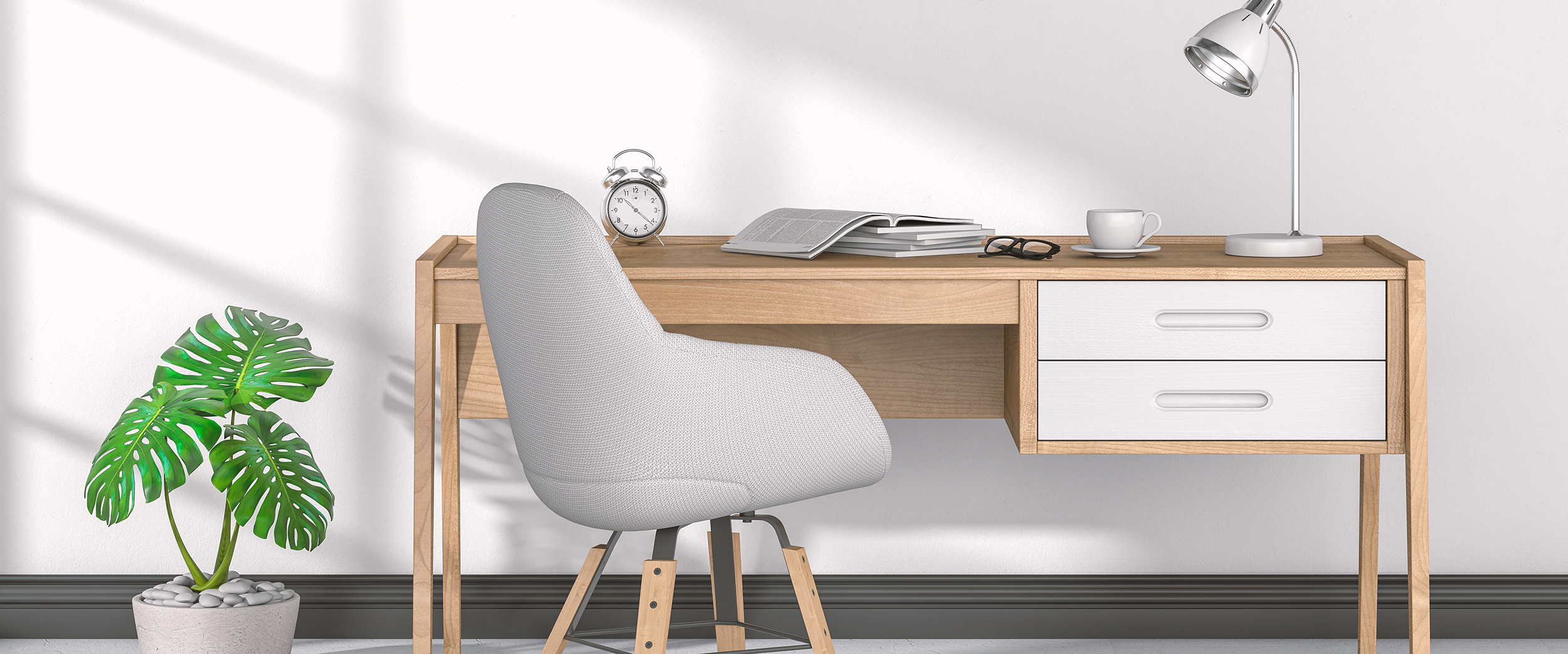If you work from home, or if you run a business from your home, you know how important it is to have a space dedicated to work. Not only is it much easier to keep your job organized if you have, a home office also helps you separate work life from home life. Working from home makes it all too easy to do work when you should be resting or to be distracted by housework when you should be focused on business. If you can physically separate the two, you can shift between work mode and rest mode simply by walking into or out of your home office.
But what goes into a great home office? You need more than just a desk in your spare bedroom. Here are a few tips for creating the ultimate home office.
It Must Be Private
The first requirement for any home office is privacy. This is why setting up your workspace in the breakfast nook or in a corner of the bedroom isn’t a good solution. It will be too easy to get distracted. It’s also very easy for work to get mixed in with other items or for guests to see private client information. If you have children, you want to make certain they won’t get into any of your work. It’s also much easier to be able to get work done if you can shut the door and focus.
It Needs to Be Wired
Putting your home office in a space with only one or two outlets is not a great idea. You’re going to likely at least have a computer, monitor, and printer to plug in. Most people also have a few other devices, and even if you don’t, you might want to have an outlet for your phone charger. If you’re building a home and have a dedicated space for your home office, make certain you have enough outlets and other wiring. You may want to have a cable connection there for your modem and even a standard phone jack if you know you’ll need a landline or fax machine.
It may be tempting to have outlets placed in the area where you think you’re going to put your desk, but that’s not always the best approach. You may get into your home and decide that your office doesn’t work the way you thought it would. By distributing outlets across the entire room (one or more on each wall is a good idea), you have the flexibility to move things around or add additional devices later.
Do You Want Built-Ins?
Having built-ins in your office are something of a preference. Some people do like having a built-in desk because they can customize that workspace. Others may want a freestanding desk so they can move it around. Others may need several large built-in bookshelves, cabinets, and drawers for storage. You can work with your builder to determine what your needs are and where they should go in the room.
Storage Is a Must
Speaking of storage, you may want to include a closet in your home office space. This can give you much-needed storage for your office supplies, products, and other items. However, before you design a giant closet, you do need to talk with the builder and make certain that you’re not creating extra difficulties. In some areas, adding a closet to a room classifies it as a bedroom. This can impact your taxes and can require a larger septic system because those systems are designed around the number of bedrooms a house has. If that’s going to be the case, you may need to discuss built-in shelves or look at storage units you can buy and add to the room later.
Do You Need an Exterior Door?
Another question to ask yourself while designing your office and building your home is whether or not you’ll have clients at your home. If you will, you may want to have a dedicated entrance to your home office. This could change the landscaping around your home and may determine where in the house you can put your office. It’s a decision you should make early on in the process, especially if you want your home office door to be easily accessible or noticeable from the driveway.
Lighting Is Key
The lighting in your home office can make it either a great place to focus on work or a headache-inducing dungeon. While you may want nice, soft lighting in other rooms, your office needs to provide you with enough light that you can clearly see what you’re working on. In some cases, this may mean bright daylight LED bulbs that recreate natural lighting. In other cases, you may actually want it darker in your office. If you do a lot of computer work, for example, you may not want a lot of light reflecting off the monitor.
Balancing your natural light is also important. Those who do a lot of computer work won’t want to have a window behind their monitors if it causes a glare. On the other hand, if your work involves photographing products, you may want a large window to allow all that natural light to flood in. Think about your needs before you decide where you want windows, but do be sure to include at least one. No one wants to work in a confined space that doesn’t get any light at all.
These are just a few of the things you need to consider to create the ultimate home office. Again, in the end, the space needs to be perfect for your needs. Think about what your work requires and create an office that makes it easy to go about that work.









